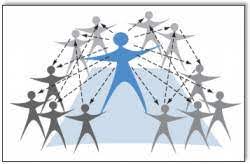Psychiatry, Human Rights and Social Contagion by Alex Dunedin


Title of talk:
Psychiatry, Human Rights and Social Contagion
Bullet points of what you would like to talk about:
- How psychiatric labels have been used in Russia
- How psychiatric labels have been used on the LGBTQ+ population
- How psychiatric labels have been used on single mothers
- How psychiatric labels have been used on inconvenient family members
- The troubling story of Rosemary Kennedy, sister of John F. Kennedy
- A discussion on social contagion, human rights and mental health
A few paragraphs on your subject:
For the past several years I have been researching and writing about mental health from critical perspectives as I feel that the field of psychiatry, social perceptions and areas like psychology can – and do – harbour some incorrect, obsolete and harmful ideas. Last year I started a Masters course on this subject area which gives me a chance to tune into the rise of an international examination of ideas associated with mental health, often in response to the powerful and toxic medications which have been prescribed – sometimes forcibly.
The area of critical mental health studies I first encountered through doing the Ragged University project when Kirsten MacLean and Steve Tilley gave short presentations many years back. I found it powerful and it raised questions which had accumulated over four decades in a society which seems to have surging amounts of psychiatric ill health. Over my own life time I have seen many situations which I found problematic but felt – due to the reinforcements in culture – that these things could not be questioned or discussed. Mad Studies has emerged as an academic subject field precisely because, like other areas which involve critical thinking such as Feminism, Queer Theory and Critical Race Theory, there are many immanent questions which must be engaged to get to a better world.
In this presentation I am going to talk through a range of sources which will hopefully reveal how psychiatry, at times, has been used to suppress and control people. I am going to take the conversation through the work I am formulating in my Masters degree where I am relating human rights violations into the psychiatric field and voice problems about unaccountable institutions and what this means for medicine; that is constructive medicine and therapy. I am also going to explore the notion of some ideas of psychiatry being social contagion which spread, get used and affect people’s lives without individuals, cultures and communities knowing that there is any cogent truth about them.
I hope to do all of this in a gentle way so that it might promote a conversation throughout that will help me see perspectives and dimension which I had not seen before, and also to do so in respectful ways so that the lives of the people who have been affected are presented with the dignity they deserve. I hope to illustrate how deep and wide this growing area of critical thinking is and invite people to find out more about the plurality of movements which have fought so hard to be heard with legitimacy in relation to the scorn that many have received instead. Central to this whole discussion is that Human Rights I argue offers a key to understanding a range of aspects of how the mood, cognition and behaviour of the individual are understood.
A few paragraphs about you:
I am a Masters student on the Mad Studies course at Queen Margaret University. I have been involved in the Ragged University project for the past 13 years seeing learning, sharing and education as key aspects of a sociological environment which humans need to remain healthy and happy. Through learning and interpersonal education I have found my life enriched particularly as I have discovered through being active in these ways, communities of individuals who are comfortable having conversations outside of social media or professional spaces.
What commonly gets associated with formal learning I have been shown is a part of the social fabric of what makes life worthwhile and also contributes to what Gregory Bateson suggested as an error checking and correcting system, and what the everyday person calls day to day life. My interests are interdisciplinary thinking, medicine, law, and every subject which gets debated in pubs and other places since the times when we first started sitting down around a fire and communicating with each other. I am especially interested in finding generative forms of critical thinking.
What free internet knowledge resources would you recommend?
The Mad World Archive: raggeduniversity.co.uk/mad-world-archive
Oor Mad History by Kirsten Maclean: raggeduniversity.co.uk/2012/06/18/oor-mad-history-kirsten-maclean
Mad People’s History by Steve Tilley: raggeduniversity.co.uk/2012/06/18/mad-peoples-history-steve-tilley
Human Rights and the Psychiatric Setting: raggeduniversity.co.uk/2023/02/07/human-rights-psychiatric-setting
Podcast: Psychiatry; A Woman’s Account of Being Sectioned: raggeduniversity.co.uk/2015/04/23/podcast-psychiatry-a-womans-account-of-being-sectioned
What are your weblinks?
Website – raggeduniversity.co.uk
Email – [email protected]
This event took place on the 30th March 2023 at The Outhouse (12A Broughton Street Lane, Edinburgh, 0131 557 6668) at 6pm
